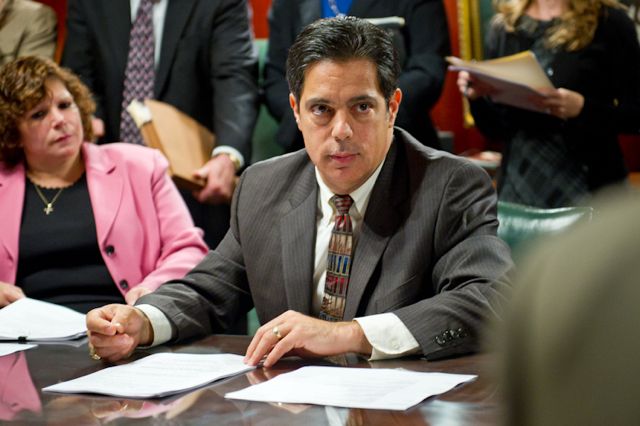By James Roxbury
Senate Co-Sponsorship Memorandum.
Posted: January 2, 2017 02:29 PM
From: Senator Jay Costa
To: All Senate members
Subject: Proposed Changes to PA Gaming Act
In the near future, I plan to introduce legislation amending the Pennsylvania Race Horse Development and Gaming Act to allow the Commonwealth’s gaming industry to continue to evolve and remain competitive in a responsible manner, respond to the Pennsylvania Supreme Court’s September 2016 ruling that declared the slot machine local share provisions of the Act unconstitutional, and generate an estimated $137 million in revenue for the FY 16-17 budget. My bill uses HB 1887, PN 4145 of last session as the base and does the following:
Re-enacts the slot machine gaming local share provisions declared unconstitutional by the Pennsylvania Supreme Court in September 2016.
When the Pennsylvania Supreme Court ruled the municipal local share assessment unconstitutional, the court cut off a vital source of funding used by counties and local municipalities to defray the costs associated with hosting a licensed facility. While some municipalities have entered into agreements with their casinos to ensure the funding continues, legislative action is necessary to ensure that communities are made whole.
Under this proposal, counties and municipalities would receive the same dollars they were receiving before the court decision was handed down. Category 1 and 2 licensed facilities would be required to pay an annual slot machine license renewal fee equal to 20% of the cost of the $50 million original slot machine license. The distribution of the money for both the counties and municipalities will remain the same with minor changes that were included in HB 1887.
Legalizes internet gaming and fantasy sports in the Commonwealth
The bill authorizes the Commonwealth’s casinos to offer internet gaming. All categories of casinos will be eligible for an internet gaming license. A license fee of $10 million will be imposed. Vendors that contract with a casino to host the casino’s internet gaming platform will be subject to licensure and a licensing fee of $5 million. License fees will be deposited into the General Fund.
Internet gaming revenues will be taxed at a rate of 25%. Of that 25%, 15% will be deposited into the Property Tax Relief Fund to provide school property tax reductions to taxpayers under the Taxpayer Relief Act and to avoid potential cannibalization of property tax relief dollars through the legalization of internet gaming. The remaining 10% will be deposited into an account within the Commonwealth Financing Authority for economic development projects. Fifty percent of the funds in the account will be set aside for projects in counties contiguous to a county that hosts a casino, the remainder will be available for projects in all 67 counties.
All casino games (i.e., slots and table games) will be made available for internet play. Players will have the option to sign up online or in person at a casino. To deter tax avoidance by casinos, internet gaming will be prohibited on casino property.
The bill also will authorize multi-use computing devices (i.e., tablet gaming) at the Philadelphia and Pittsburgh airports in the form of a five-year pilot program. Operators will be required to pay a $2.5 million license fee, which will be deposited into the General Fund. Tablet gaming revenues will also be taxed at 25%.
The bill will also authorize daily fantasy sports games in the Commonwealth. A license fee of $2.5 million will be imposed. Daily fantasy sports revenues will be taxed at a rate of 25%, and all tax revenues will be deposited into the State Lottery Fund.
Authorizes the State Lottery to offer iLottery to increase revenues for senior citizen programs paid out of the State Lottery Fund.
The Commonwealth’s fiscal challenges have placed increased strain on the State Lottery Fund, and I believe it is imperative that we provide the lottery with the tools it needs to adjust and remain solvent in the future.
Other updates to the Act
The bill allows the Pennsylvania Gaming Control Board (PGCB), upon application of the holder of a Category 3 license and after payment of a fee of $1 million a year for five years, to waive the “patron of amenities” requirement contained in the current act.
The bill also makes several regulatory and technical changes supported by PGCB to ensure the vitality of the gaming industry for years to come.
Revenues
Source Assumed Participation Rate Projected General Fund
Revenue for FY 16-17*
Internet Gaming License Fee - $10 million 10 (of 12) $100 million
Internet Gaming Vendor Fee - $5 million 5 (of 10) $25 million
Airport Tablet Gaming Fee - $2.5 million 2 (of 2) $5 million
Daily Fantasy Sports License Fee - $2.5 million 2 $5 million
Patron of Amenities Fee - $1 million 2 (of 2) $2 million
* Assumes PGCB can conduct proper licensing process prior to conclusion of FY 16-17 fiscal year
I hope that you will join me in cosponsoring this legislation. If you have any questions, please contact my office.
photo file
